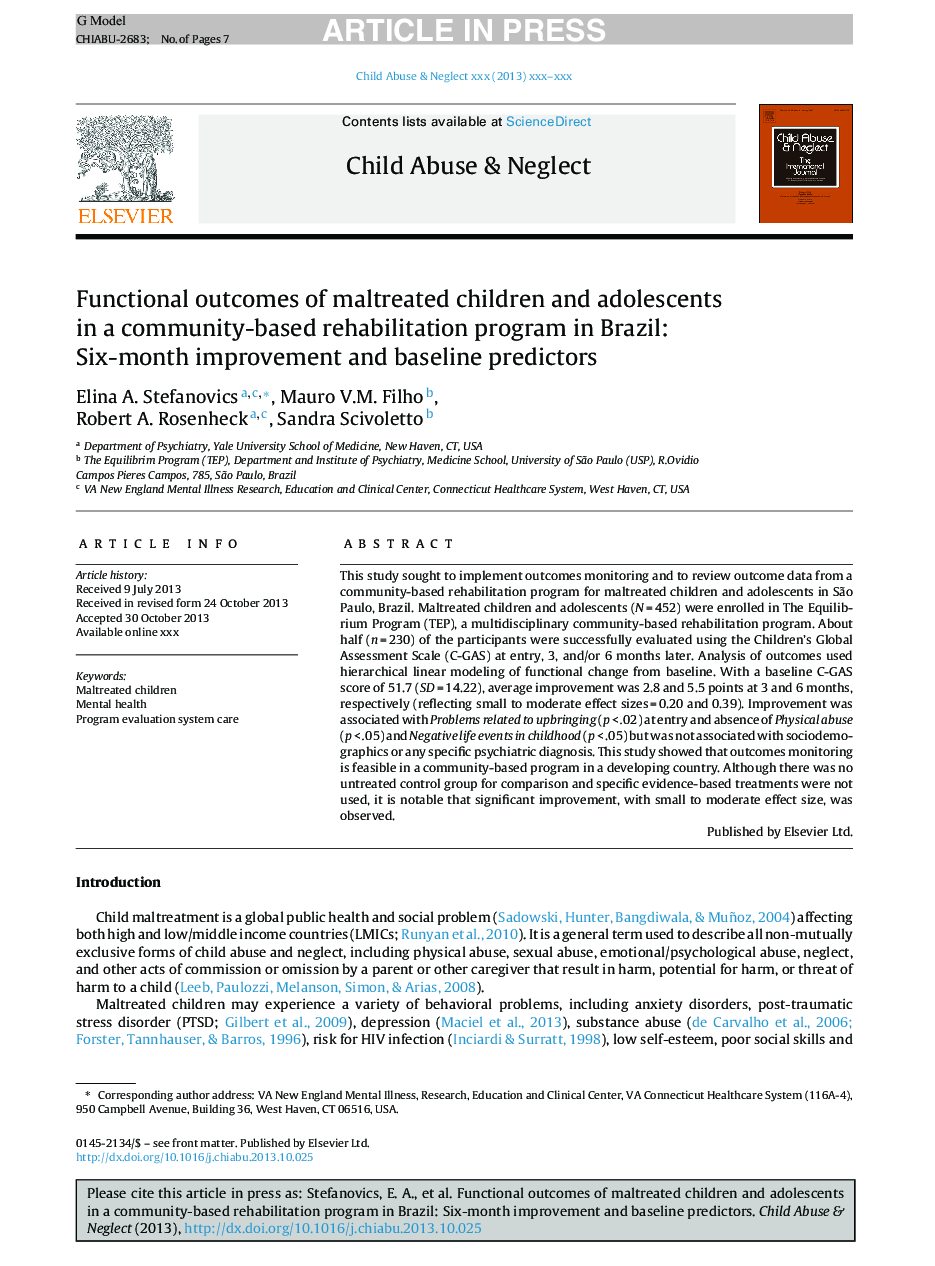| Article ID | Journal | Published Year | Pages | File Type |
|---|---|---|---|---|
| 10310711 | Child Abuse & Neglect | 2014 | 7 Pages |
Abstract
This study sought to implement outcomes monitoring and to review outcome data from a community-based rehabilitation program for maltreated children and adolescents in São Paulo, Brazil. Maltreated children and adolescents (N = 452) were enrolled in The Equilibrium Program (TEP), a multidisciplinary community-based rehabilitation program. About half (n = 230) of the participants were successfully evaluated using the Children's Global Assessment Scale (C-GAS) at entry, 3, and/or 6 months later. Analysis of outcomes used hierarchical linear modeling of functional change from baseline. With a baseline C-GAS score of 51.7 (SD = 14.22), average improvement was 2.8 and 5.5 points at 3 and 6 months, respectively (reflecting small to moderate effect sizes = 0.20 and 0.39). Improvement was associated with Problems related to upbringing (p < .02) at entry and absence of Physical abuse (p < .05) and Negative life events in childhood (p < .05) but was not associated with sociodemographics or any specific psychiatric diagnosis. This study showed that outcomes monitoring is feasible in a community-based program in a developing country. Although there was no untreated control group for comparison and specific evidence-based treatments were not used, it is notable that significant improvement, with small to moderate effect size, was observed.
Keywords
Related Topics
Health Sciences
Medicine and Dentistry
Perinatology, Pediatrics and Child Health
Authors
Elina A. Stefanovics, Mauro V.M. Filho, Robert A. Rosenheck, Sandra Scivoletto,
